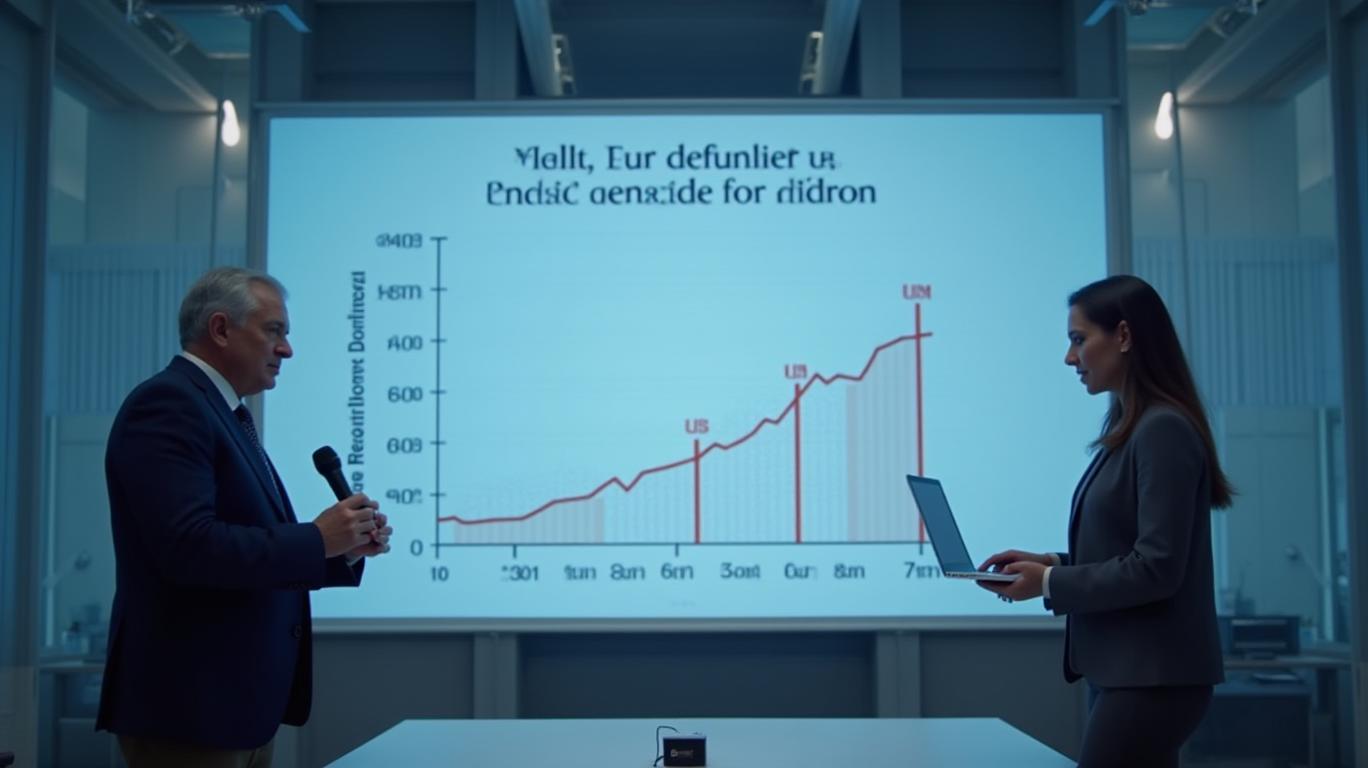McKesson’s Middleman Mastery: Why Jim Cramer’s “Money Machine” Could Be Your Next Big Investment
In a market teeming with volatility and skepticism, Jim Cramer has long been a voice of contrarian wisdom. His recent endorsement of mckesson corporation (MCK) as a “money machine” demands attention. Here’s why the healthcare logistics giant—despite its complexities—is a compelling play for 2025 and beyond.

The “Money Machine” Moniker: More Than a Slogan
Cramer’s label isn’t hyperbole. McKesson’s dominance as a healthcare middleman is unparalleled. The company’s dual role as a distributor of medications, medical supplies, and a provider of technology solutions to pharmacies and hospitals positions it as an essential player in the $4 trillion U.S. healthcare market. “This is a company that touches every corner of healthcare,” Cramer noted in April 2025, emphasizing its resilience to trade wars and economic shifts.
The business model is a triple lever:
1. Scale: $309 billion in 2023 revenue, up 12% year-over-year.
2. Diversification: Exposure to pharmaceuticals, medical technology, and software services.
3. Defensiveness: Minimal tariff risk due to domestic supply chains and partnerships.
Financials: Missed Revenue, But Rising Confidence
While McKesson’s Q3 2025 revenue fell short of estimates due to underperformance in its U.S. pharmaceutical segment, the company’s raised full-year adjusted EPS guidance signals management’s confidence. Analysts have taken notice: 13 of them rate MCK a “Strong Buy,” with a 12-month average price target of $671.46—a 3.7% discount to its April 17 close of $697.08. One outlier, Seeking Alpha, sees $723 potential, citing McKesson’s oncology network and precision medicine initiatives.
Strategic Moves: Expanding the Empire
McKesson isn’t resting on its logistics laurels. Two recent moves underscore its ambition:
- PRISM Vision Holdings Acquisition: A $1.2 billion deal to dominate the eye-care specialty pharmacy market.
- Precision Care Companion: A new tool for oncology practices to navigate biomarker testing—a critical step in personalized cancer treatment.
These moves align with a broader theme: leveraging data and technology to serve healthcare providers. The Practice Insights platform, requalified as a CMS-approved registry, further cements McKesson’s role as a compliance and analytics leader.
Risks and Reality Checks
No investment is without risks. McKesson’s Q3 revenue miss and a 16% decline in 2023 earnings highlight sector-specific pressures, particularly in branded drug distribution. Additionally, Cramer’s recent focus on AI stocks—calling one a “25% gainer” in a slumping sector—suggests he prioritizes short-term volatility plays over McKesson’s steady grind.
Yet, McKesson’s dividend history ($0.71 quarterly) and its status as a holding for 78 hedge funds (as of Q4 2024) speak to institutional trust. The company’s defensive profile also shines in a market where trade tensions and interest rates loom large.
Market Sentiment: A Stock Defying Gravity
Despite its mid-April dip to $649.48, McKesson’s stock has rebounded, closing April 19 at $663.79. Trading volume surged on April 4 to 3.15 million shares—a sign of investor interest. Analysts like Benzinga highlight its “resilience during uncertainty,” with some predicting a 30% upside by year-end.
Conclusion: Buy the Middleman, Not the Hype
McKesson isn’t a flashy growth stock. It’s a systematic play on healthcare’s evolution—a sector that will always need reliable logistics and tech. With $671.46 as the median price target, and a business model that’s both recession-resistant and tariff-proof, Cramer’s advice to “start buying gradually” holds water.
The risks? Yes—sector headwinds and execution on new initiatives. But the data is clear: McKesson’s scale, diversification, and institutional support make it a core holding for portfolios navigating 2025’s turbulence. For investors willing to look past short-term swings, this “money machine” could deliver steady returns—and then some.
Andrew Ross Sorkin’s analysis, 2025.


_cbf77e8c1748017079428.jpeg)






